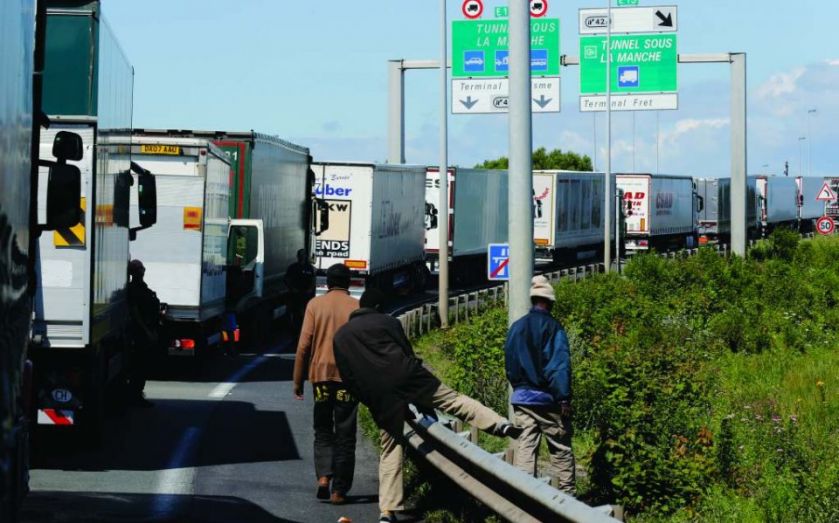Crisis in Calais takes its toll on Channel Tunnel trade: Disruption “having a severe effect on the UK economy”

Business groups are putting pressure on the UK government to step up border security measures, claiming that the chaos in Calais is coming at a steep cost to the economy.
For weeks, industrial strikes and action by migrants have disrupted services through the French port, holding up trucks on both sides of the English Channel. The Channel Tunnel, operated by the publicly traded French company Eurotunnel, has been closed multiple times. In Kent, the coast-bound side of the M20 motorway has been brought to a standstill for more than half of the past month under the so-called “Operation Stack” policy.
On Monday night, the chaos reached new heights as 1,500 migrants in Calais tried to storm the tunnel, prompting Prime Minister David Cameron to call an emergency meeting of government ministers to address the issue.
And business leaders are calling on the government to do more. Katja Hall, deputy director-general at the Confederation of British Industry (CBI) said yesterday that the disruption at Calais “also has an economic impact as exporters are being delayed getting their goods to market”.
Hall’s comments came after the Federation of Small Businesses (FSB) said that the disruption was “having a severe effect on the UK economy, causing extreme frustration for small businesses – not only in Kent”.
The Freight Transport Association (FTA) estimates that port delays on both sides of the Channel are costing the UK logistics industry £750,000 each day. Echoing the FSB, the association’s deputy chief executive James Hookham said: “These figures show that Operation Stack is not just an issue for Kent and the south east of England, but a serious national strategic problem.”
“This is the country’s GDP and exports standing still in these horrendous queues caused by the situation in Calais,” Hookham added.
In Kent alone, local authorities estimate that the county’s economy is losing £1.5m in tourism revenues and consumer spending for each day of disruptions.